Those who don’t study the past, as the saying goes, are doomed to repeat it. That sentiment feels particularly true in this particular political moment, but it can also be applied to less obvious moments from the history of sports, culture and crime. Thankfully, wise podcast listeners looking for a soundtrack to their next long road trip or Sunday chores have plenty of worthy options for learning those historical lessons.
And those options are a far cry from a dry high school textbook read aloud: Many of today’s best history podcasts immerse listeners in the moments they examine, whether they be the French Revolution or the fledgling years of hip-hop. They cover topics ranging from past presidencies to Oprah Winfrey’s rise, entertain with tales of Hollywood scandal and invite listeners to play detective on mysteries of yore. Some spend hundreds of hours on a single subject or time period. Others simply offer nostalgic missives from faraway places and long-ago times.
But all of the series can teach today’s listeners lessons about how we have evolved (or, in some cases, devolved) as a society, whether culturally, socially or politically. For podcast fans looking for something more specific, or perhaps educational, than those on offer in TIME’s annual “50 Best Podcasts” list, here are all the best history podcasts to listen to right now.
30 for 30

This audio spinoff of ESPN’s famed 30 for 30 documentary series, hosted by Jody Avirgan, explores sports stories from history exclusively in the podcast format. Most episodes cover a different sports saga, with the exception of a few mini-series that dive deep into one person or topic. The best of those series, “Bikram,” explores the #MeToo scandal surrounding Bikram Choudhury, a powerful cult-like figure in the yoga community, from the perspective of a former Bikram devotee, Julia Lowrie Henderson. Henderson admirably hands the microphone to Choudhury’s victims to share their experiences, setting an example for how to tell a story about perpetrators of abuse while honoring survivors’ pain.
Backstory

Plenty of history podcasts are made by curious, diligent lay-people. This one comes directly from academics, which means it’s especially accurate, thorough and reliable. But don’t mistake academic for tedious — it’s also entertaining. U.S. historians Ed Ayers, Brian Balogh, Nathan Connolly and Joanne Freeman of Virginia Humanities endeavor to look at today’s headlines through the lens of American history. They assure their listeners that these are the stories they “want to learn,” not the ones they “had to learn” in history class. Last year, in a particularly successful series, they covered the history of media, including one episode specifically on the history of fake news. (Spoiler alert: founding father Benjamin Franklin had a hand in creating fake news for political purposes.)
Cocaine and Rhinestones
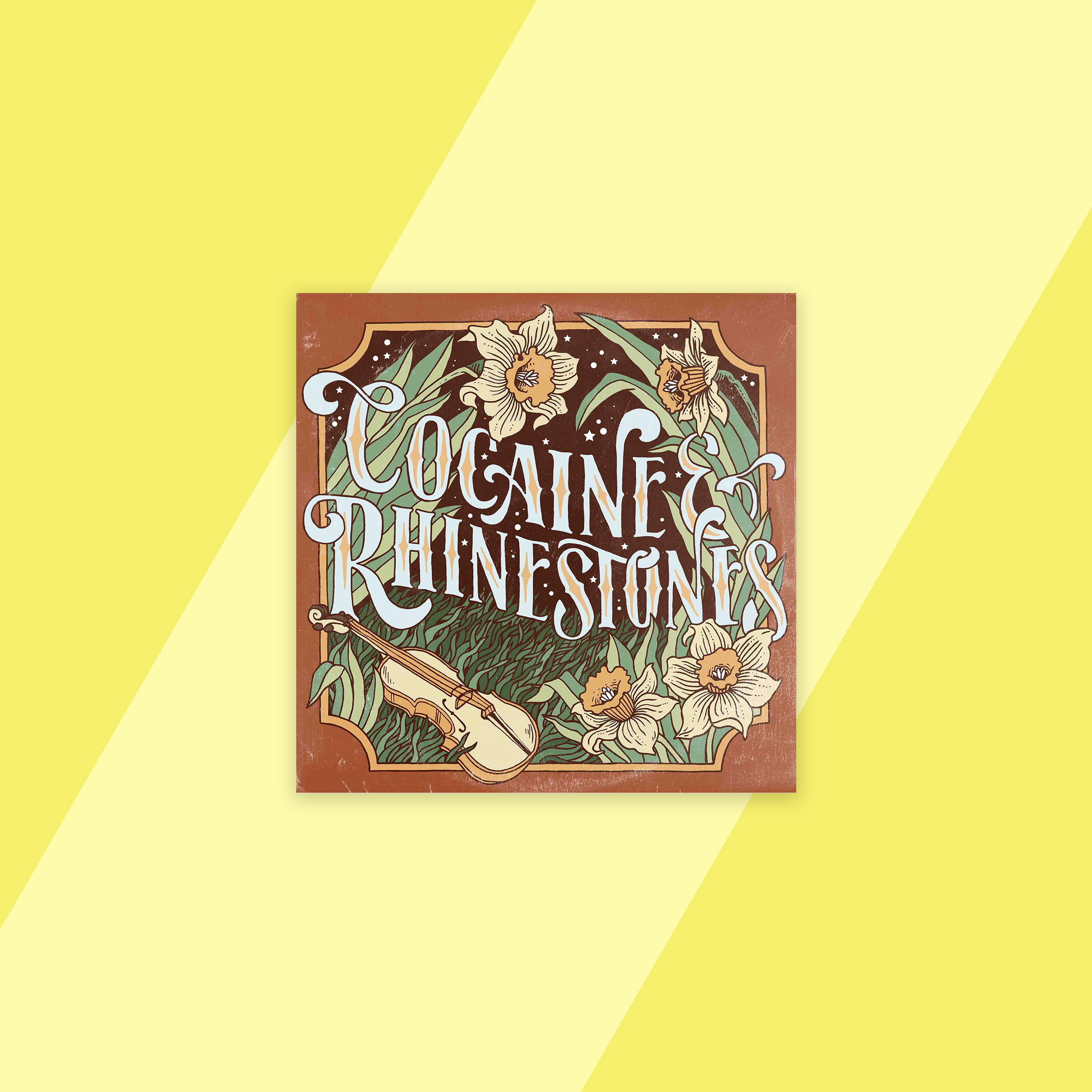
This obsessively researched, essayistic show examines the history of country music and some of its icons. Even those who have never donned a cowboy hat will appreciate the sordid and controversial history of the genre. In the first episode, host Tyler Mahan Coe investigates why Loretta Lynn’s birth control song “The Pill” was banned from radio stations while much more violent and morally dubious fare from her male counterparts was not. In later installments, he investigates the rise and fall of Spade Cooley, who was convicted of brutally murdering his wife in 1961 only to be granted a pardon by then-California governor Ronald Reagan years later. Coe, the son of country outlaw David Allan Coe, grew up hearing versions of many of these stories. But his rigorous re-examination of facts and fables lays out a compelling case for their continued relevance, especially when it comes to sexism in the music business.
Dan Carlin’s Hardcore History
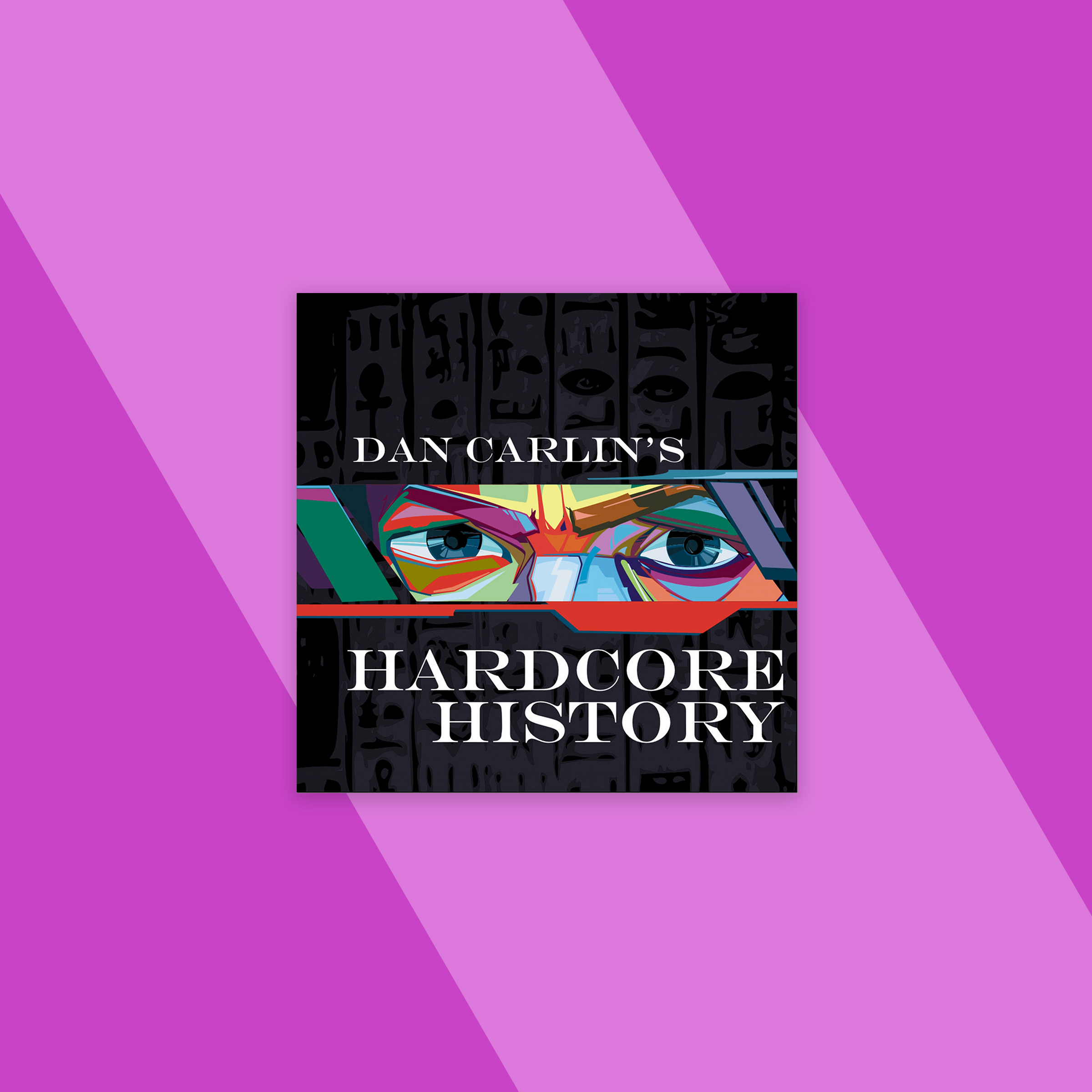
If you are a fan of history podcasts, you’ve likely run across Dan Carlin’s work. One of the early pioneers in podcasting, Carlin is, above all else, a skilled orator. He doesn’t interview guests or mix in audio effects. On his own, he dramatically narrates some of the most epic moments in human history with such color that Hollywood producers looking for new material ought to take notice. Carlin focuses on leaders (Genghis Khan, Alexander the Great, Hitler), atrocities (war crimes, subjugation, nuclear proliferation) and wars (Punic, World and Cold, to name a few). His stories involve high-stakes and shocking twists that will keep even the least academically inclined listeners on edge, which is good news since the episodes have grown epically long: His series on the fall of Rome, “Death of the Republic,” stretches 13 hours.
History of Rome & Revolutions
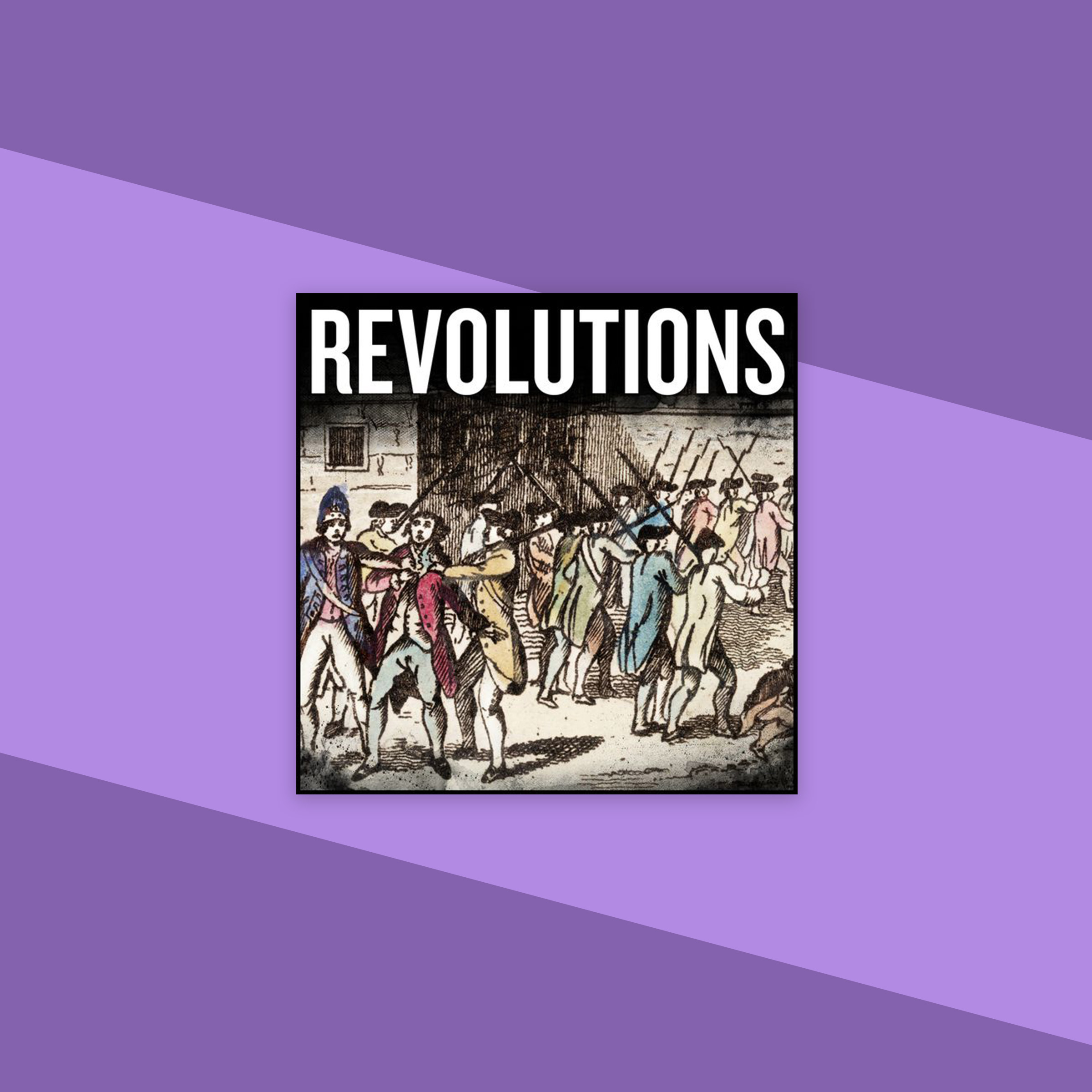
Mike Duncan’s comprehensive podcasts are built for history lovers. His best-known show studied the history of Rome from Aeneas’ founding to the empire’s fall, which, for those unfamiliar with Roman history, involves murder, betrayal, civil war and a handful of completely crazed and depraved emperors. Duncan has since gone on to record a “Revolutions” series that examines, well, revolutions (French, American, Russian, etc.). It’s a smart choice of topic: Conflict makes for good drama. But what helps Duncan’s shows stand apart is the way he casually inflects his accounts with anecdotes and humor. His voice makes for easy listening, and you’ll find yourself devouring episode after episode.
Lore

It wouldn’t be a podcast list without at least a nod to the medium’s favorite genre: true crime. “Lore” host Aaron Mahnke explores real-life scary stories, fables and mysteries from the past with a conspiratorial tone that evokes the feeling of sitting around a campfire. In theory, the truth should assuage our fears, but it turns out that real stories are often scarier than fiction. Early episodes — about a town ravaged by what the townspeople believed to be a violent beast, the origins of an early asylum and a particularly creepy doll — prove especially haunting. (The podcast has since gotten a television adaptation on Amazon.)
Making Oprah
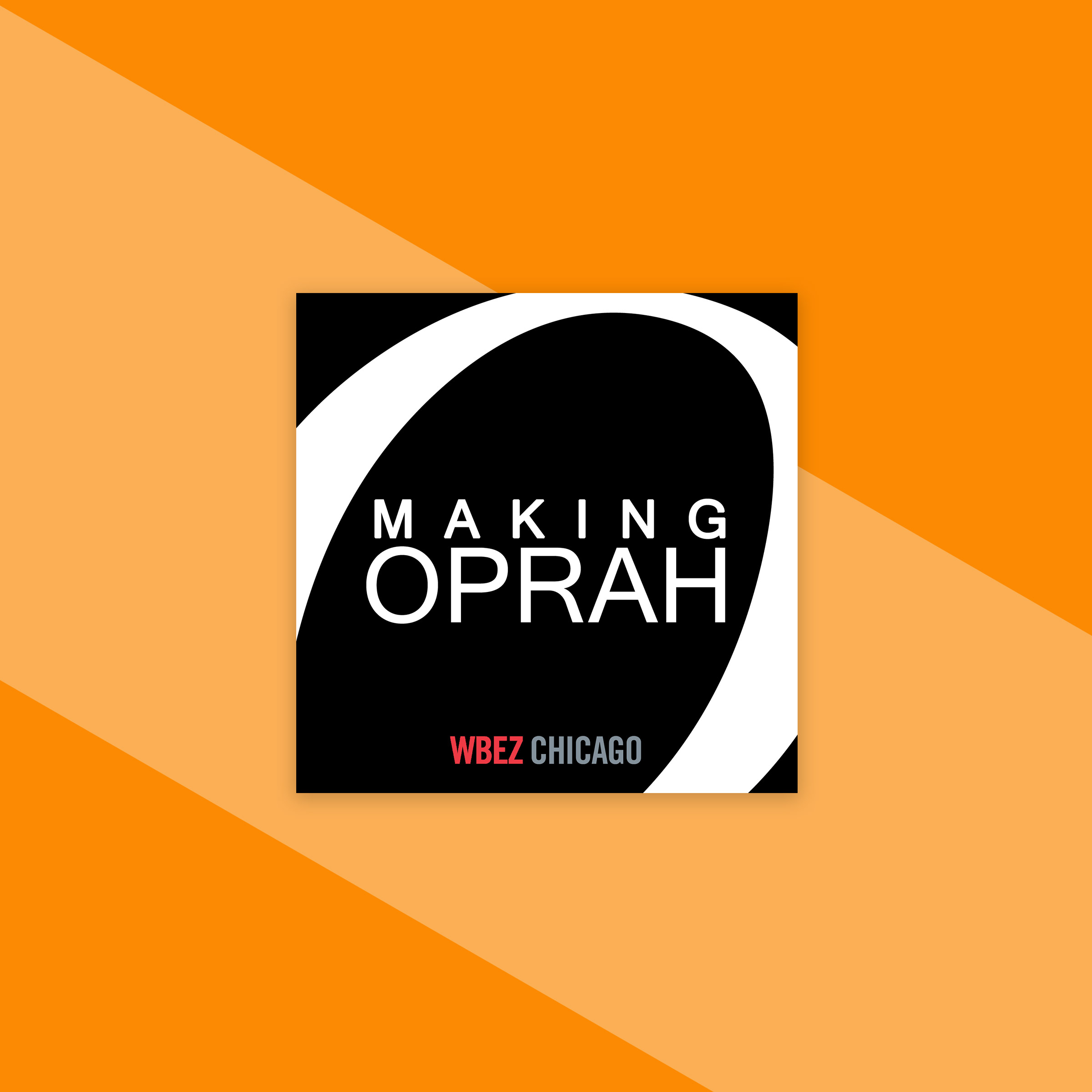
Any person with even a passing interest in Oprah should check out this throughly researched, totally captivating biography of the media mogul’s Chicago years. The show focuses on Oprah, naturally, and how she changed American attitudes towards race, gender and politics. But the series also branches out into a larger discussion of the talk show host format and the massive impact it had on societal attitudes in the 1980s and 1990s. Host Jenn White (who went on to make Making Obama, as well) interviews producers, executives and Oprah Winfrey herself to learn what makes Oprah different from any other icon in pop culture. (Spoiler alert: It has a lot to do with her work ethic and meticulousness, as demonstrated by the fascinating story behind the famous “You get a car!” moment.)
The Memory Palace
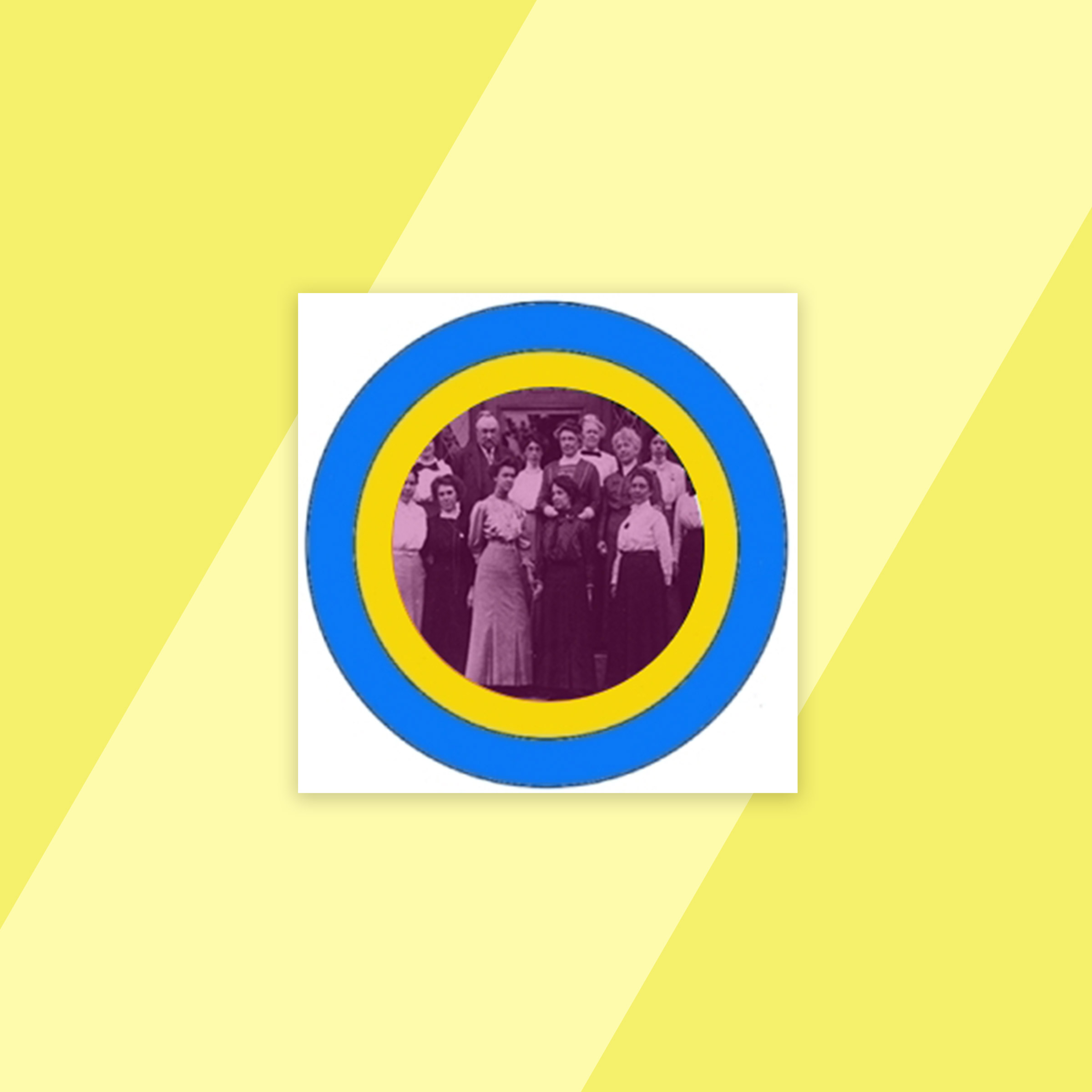
This long-running podcast consists of a series of vignettes about various objects, people and places throughout history, like the old Dreamland amusement park in Coney Island before it burned down in 1911. Host Nate DiMeo purposefully omits episode descriptions in the hopes that listeners will begin each story blind and give in to the memories that each individual subject evokes. He tells empathetic stories about his subjects and conjures dream-like settings with vivid descriptions and wistful commentary. The episodes can get somewhat esoteric. DiMeo gave one particularly good episode a title that could never fit on the iTunes charts: “Notes on an Imagined Plaque to Be Added to the Statue of General Nathan Bedford Forrest, Upon Hearing That the Memphis City Council Has Voted to Move It and the Exhumed Remains of General Forrest and His Wife, Mary Ann Montgomery Forrest, from Their Current Location in a Park Downtown, to the Nearby Elmwood Cemetery.” And on the event of the 2016 presidential election, he simply read Walt Whitman’s “Song of Myself” in its entirety. But DiMeo is after a nostalgic feeling more than any one fact, and he succeeds.
Mogul

The best biographical podcasts focus not on a person but on some larger theme into which that person’s life offers a window. Mogul is a perfect example of such a show. The series covers the life and death of Chris Lighty, a manager who represented Missy Elliott, 50 Cent and Busta Rhymes, and, in following his story, traces the history of hip-hop. Host Reggie Ossé, a former industry lawyer who knew Lighty, brings passion to the story of his old friend. He pulls in listeners, whom he dubs “internets,” with the glitz of private parties and astronomic success, but then explores the underbelly of that success. This is one of the most considerate meditations on mental health issues available in podcasts today. The astounding series is also a testament to the storytelling talents of Ossé (a.k.a. Combat Jack), who passed away in 2017.
More Perfect

Perhaps it’s no surprise that the creators behind the beloved and long-running podcast “Radiolab” are also behind one of the best history podcasts available. Each episode of More Perfect delves into a specific Supreme Court case and tries to get inside the justice’s heads to understand why they made the decisions that have had decades- or even centuries-long ripple effects in American society. For anyone interested in the decisions of the Supreme Court — and anyone living in America should be, considering how their rulings can fundamentally change our lives — More Perfect helps us to understand why American history has unfolded the way it has and what the may be in store for the future. Last year, More Perfect turned its focus to the 27 amendments to the constitution and put out an “album” of original music and art inspired by each of them.
Nice Try

Avery Trufelman has become a well-known voice in podcasting with the beloved design show 99% Invisible and its spinoff series about clothing design, Articles of Interest. Her latest podcast focuses on people who attempted to design utopias throughout history. Spoiler alert: These blissful communities rarely succeed. The first episode tells the story of Jamestown, which is radically different from the Disneyfied version depicted in Pocahontas. Trufelman, who has a soothing yet engaging voice, chronicles all the woes of this early American colony, from cannibalism to a stick of dynamite blowing up in John Smith’s lap. Over the course of several episodes, a storyline begins to emerge about humanity’s best intentions in constructing a society, and why ambitious founders always seem to fall short.
Presidential

In each episode of this Washington Post podcast, host Lillian Cunningham dives into the life and legacy of a different American president. The show often focuses on the tension between how we perceive these historical figures and who they actually were — as in one running joke in which Cunningham asks historians what it would be like to go on a blind date with various presidents. The show boasts enviable guests like Pulitzer-winning historian David McCullough and journalist Bob Woodward. Originally released as a series leading up to the 2016 election, the podcast remains evergreen. Taken together, the episodes show that what Americans wanted from and required of our most prominent elected official has fundamentally changed over the years.
Revisionist History
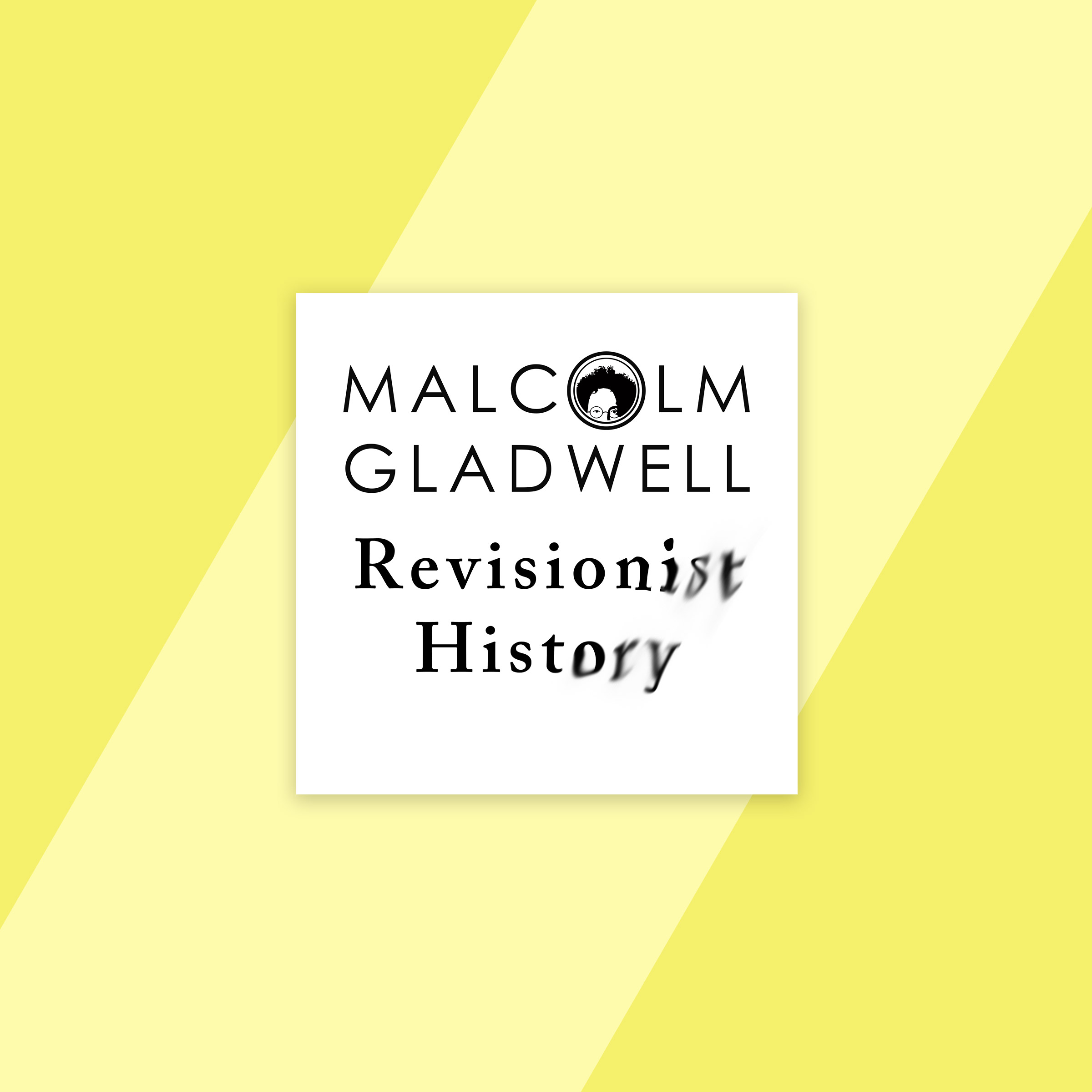
Famed writer Malcolm Gladwell has always made compelling cases for the counterintuitive narrative — for better or worse. His podcast reexamines “overlooked” moments in history, like why a famed basketball player made the illogical decision to favor a worse free throw form or why an artist who broke the glass ceiling only ended up reconfirming gender biases. Gladwell comes alive when tackling societal injustices that are particularly irksome to him: One of his best episodes begins as a diatribe against golf but evolves into a gripping investigation into how the wealthy evade tax law. In another series, Gladwell examines how small choices at American universities, like what food to serve in the cafeteria, can have a massive impact on what schools low-income students can attend.
Slow Burn
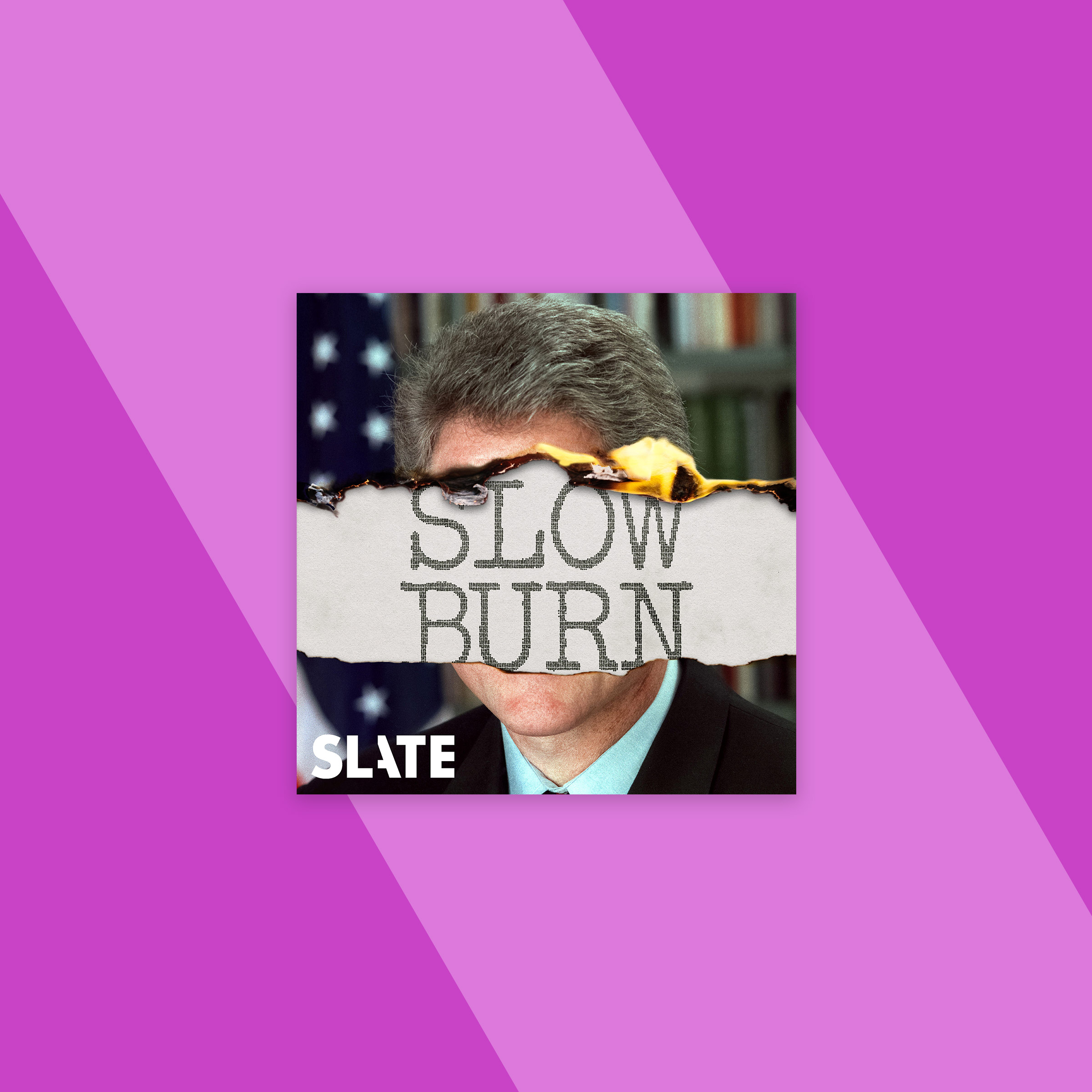
It can be difficult to make history feel urgent. But Slate’s excellent podcast Slow Burn has produced two gripping seasons about the Watergate and Lewinsky scandals, respectively. For listeners who did not live through the Nixon or Clinton presidencies — or are too young to remember them — the stories provide necessary background to the current political moment. But the show also pushes listeners who do remember to re-contextualize the major news events of their past, like when, exactly, the public was pushed over the edge by Nixon’s lies or whether the press’ coverage of Monica Lewinsky was tinged with sexism. Slow Burn implicitly compares those two historical events to our current political moment and asks whether there is a lesson that we, the voters, can learn from these incidents. After completing those two seasons, fans should seek out host Leon Neyfakh’s new podcast Fiasco on the platform Luminary. That show takes a deep dive into the 2000 presidential election and recount.
Listen on Apple Podcasts
Throughline
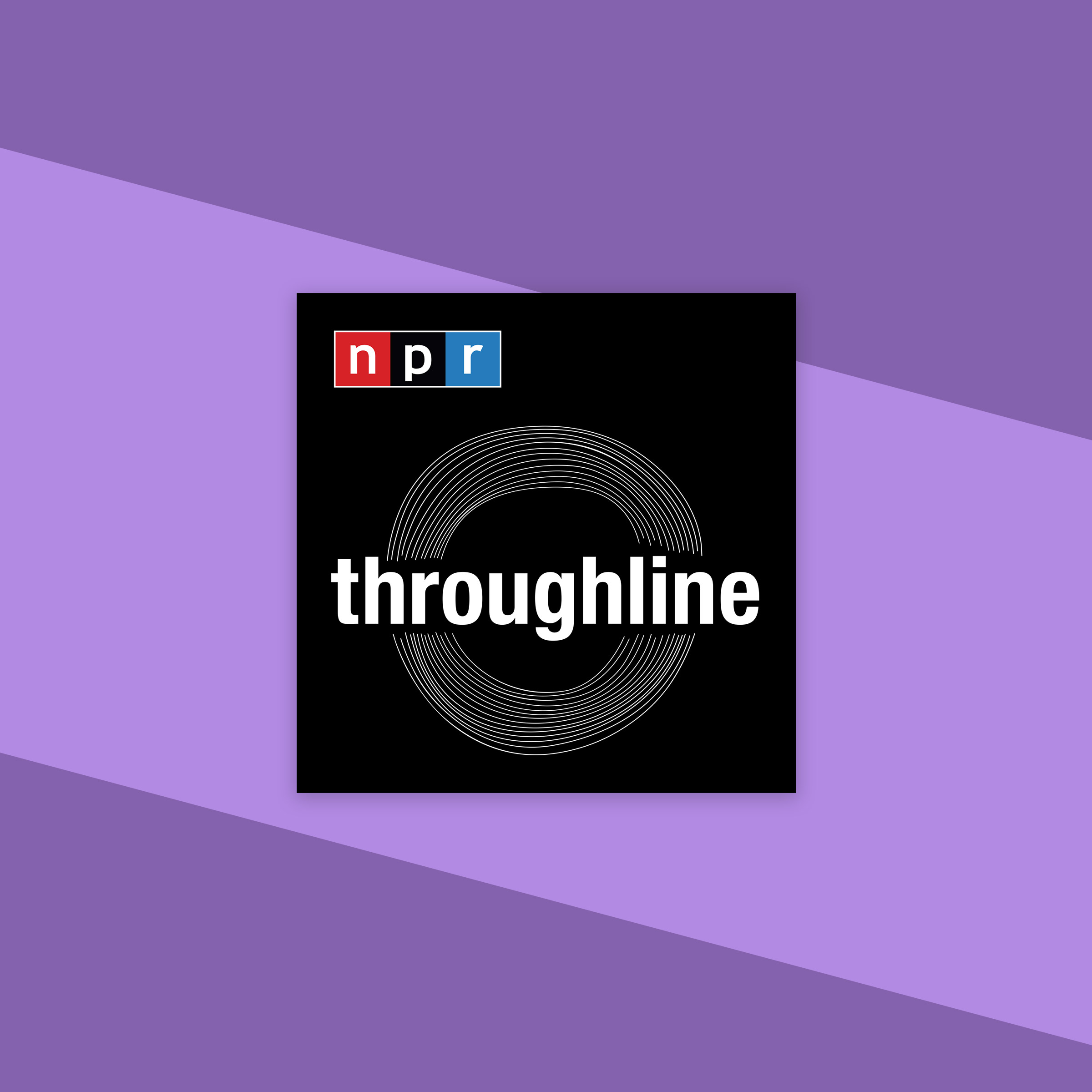
Ramtin Arablouei and Rund Abdelfatah, the hosts of NPR’s new podcast Throughline, are here to remind us that we must heed the past as we consider what it means to live in the present. The two hosts show how past events led to a current headline-making moment, like how the long history of black athletes protesting at sporting events stoked the reaction to Colin Kaepernick taking a knee during the national anthem. In another episode, they study the history of militarization at the U.S.-Mexico border that preceded Trump’s declaration of a national emergency. Unlike many of the podcasts on this list, which are designed for history buffs, this is a show that news junkies need in order to fully understand the headlines and supplement their daily media intake.
Uncivil
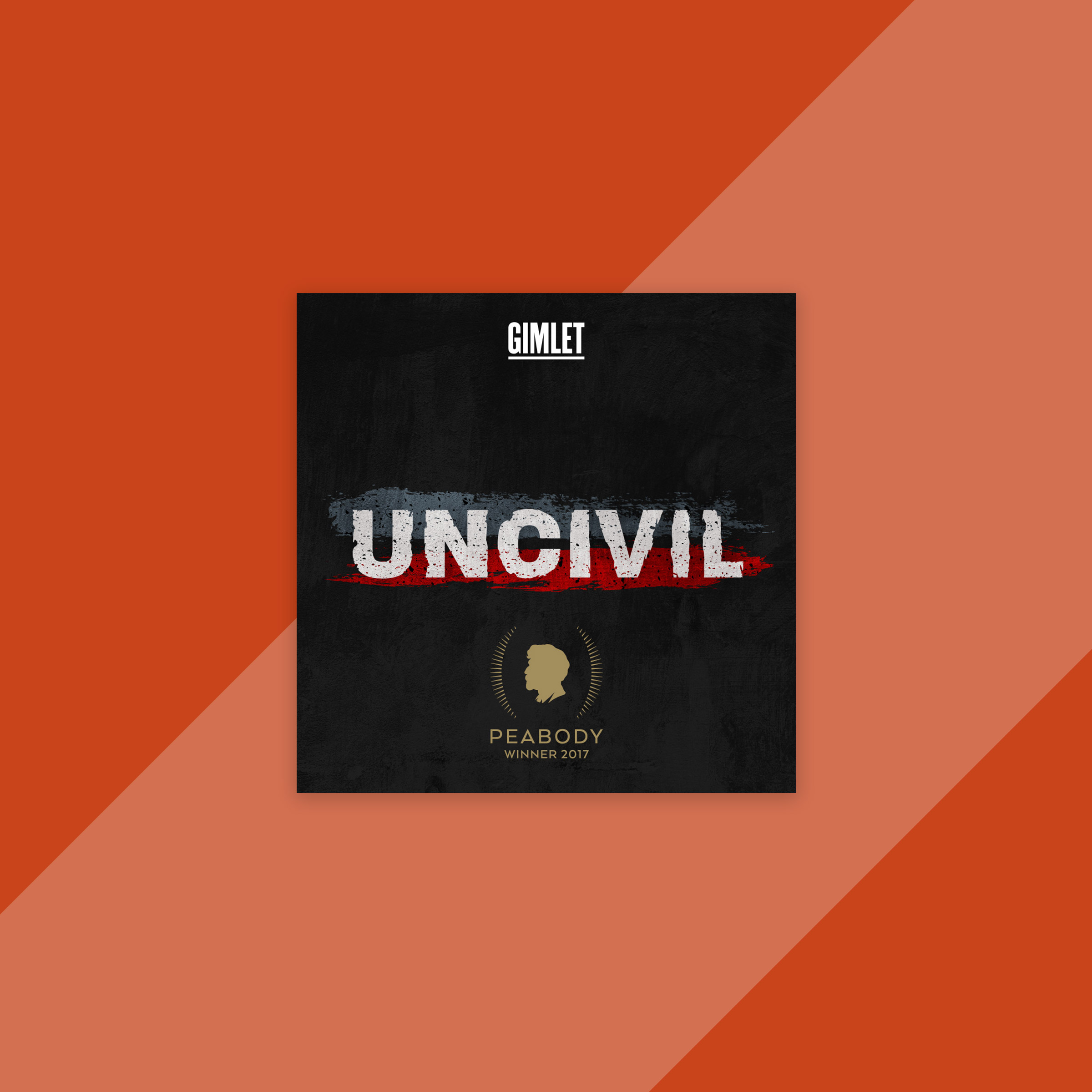
Hosts Jack Hitt and Chenjerai Kumanyika promise to teach listeners the Civil War history they didn’t learn in school. Their revelations will make you question whether we need to tear apart our American history books (if you weren’t thinking about that already) and rewrite a more accurate — and bleaker — account of our own history. One powerful episode explores how Robert E. Lee and his followers spread the narrative in schools that the war was about states’ rights, not slavery, after the South lost — despite the Confederacy’s well-documented focus on protecting the institution of slavery during the war. Hitt and Kumanyika deftly connect these historical events to our perceptions of the Civil War, slavery and race today as a national debate wages over confederate monuments, reparations and our divisions as a country.
You Must Remember This
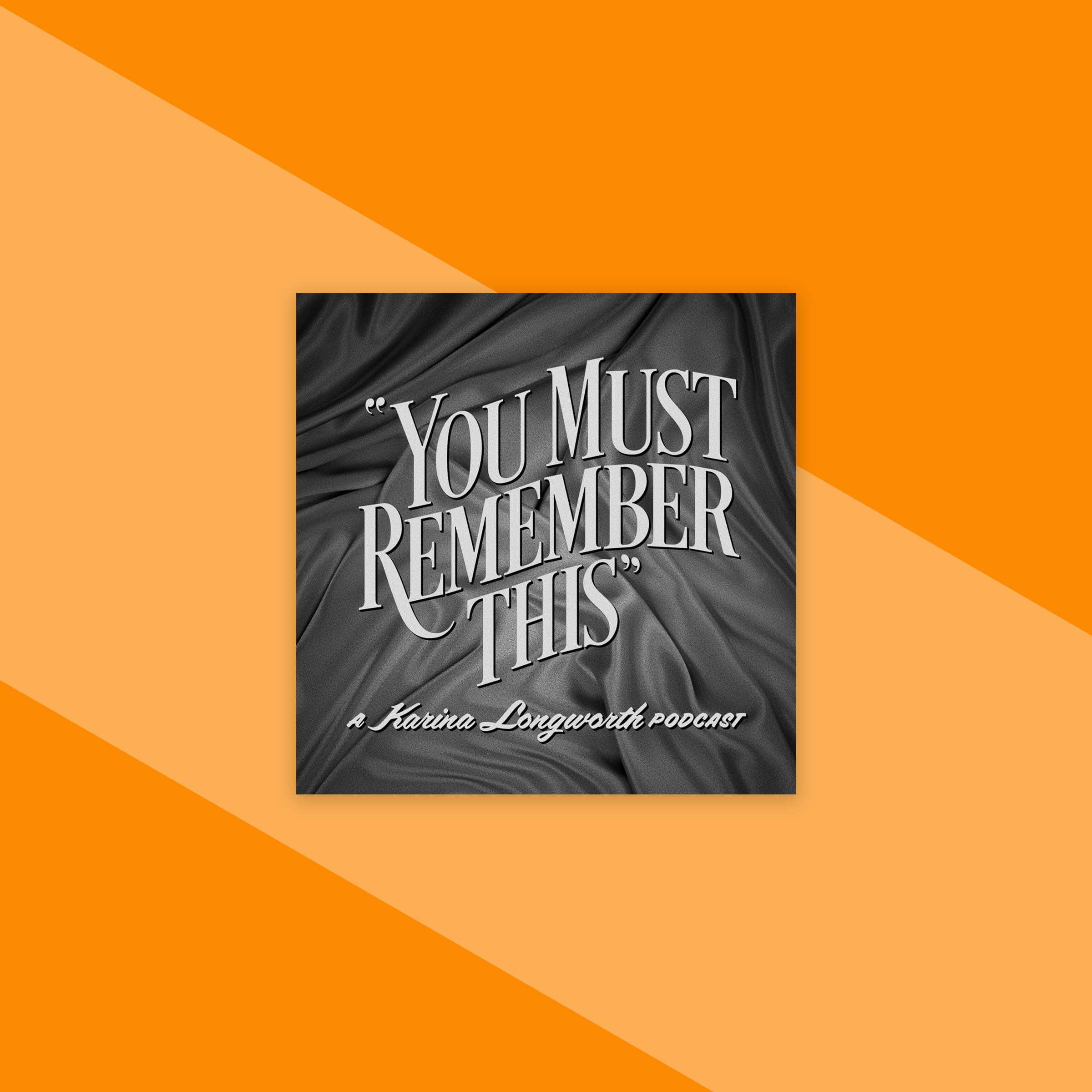
Karina Longworth’s glorious series on the secrets and scandals of 20th-century Hollywood is exalted by podcast fans for a reason. Yes, the stories contrast the glamour and romanticism of old Hollywood with the sex, violence and general depravity that so many in the industry seemed to be engaging in. But Longworth’s voice is hypnotic and her stories completely submerge the listener in a bygone era, as otherwise distant icons like Marilyn Monroe and monsters like Charles Manson suddenly feel tangible and accessible. The show recently went on “indefinite hiatus,” but there’s a massive backlog of episodes for anyone obsessed with tinseltown or scandal.
More Must-Reads from TIME
- Donald Trump Is TIME's 2024 Person of the Year
- Why We Chose Trump as Person of the Year
- Is Intermittent Fasting Good or Bad for You?
- The 100 Must-Read Books of 2024
- The 20 Best Christmas TV Episodes
- Column: If Optimism Feels Ridiculous Now, Try Hope
- The Future of Climate Action Is Trade Policy
- Merle Bombardieri Is Helping People Make the Baby Decision
Write to Eliana Dockterman at eliana.dockterman@time.com